On 11.02.2021, a hearing on the criminal case of Armen Charchyan was held in the court of first instance of the city of Yerevan. He was charged under paragraph 2 of part 4 of Article 154 of the RA Criminal Code. He is accused of using his power as the executive director of “Izmiryan” Medical Center to force the center’s employees to vote for the “Armenia” party bloc and not vote for the “Civil Contract” party bloc.
In this proceeding, the court ruled to conduct a forensic medical examination to assess the state of health of the defendant, on which the question of replacing detention depends.
During the trial, the court discussed the issue of recognizing specialists as experts. The court hearing was attended by three of the five specialists appointed by the Minister of Health. One of the specialists refused to participate in this case as an expert, and the other did not appear in court for health reasons. The court decided to apply in writing to the Minister of Health with a request to replace the specialists who did not appear at the hearing with other specialists. The defense refers to Part 4 of Art. 137 of the RA Criminal Procedure Code. According to Part 4 of Art. 137 of the RA Criminal Procedure Code, if detention is applied to the accused as a measure of restraint, the court may further admit the possibility of releasing the accused from custody using other measures of restraint at the request of the defense. Such a petition may be filed when new circumstances arise that were not known or could not have been known.
Armenian legislation in the field of application of the provisions of Part 4 of Art. 137 of the RA Criminal Procedure Code corresponds with the norms of international law, including the European Convention for the Protection of Human Rights and Fundamental Freedoms (hereinafter – the Convention). Article 3 of the Convention prohibits inhuman or degrading treatment or punishment, regardless of the circumstances of the case or the conduct of the person. According to the legal positions developed by the European Court of Human Rights (hereinafter – the ECtHR), in the event that the state of health does not correspond to further detention, a person should have the right to an effective remedy in court when deciding whether to change the measure of restraint due to illness.
However, Article 3 of the Convention cannot be interpreted as imposing a general obligation on the court to release a prisoner for health reasons, even if he suffers from a disease that is difficult to treat. However, the state must ensure that the state of health of the accused is compatible with the conditions of his detention. It is worth noting that the defense did not state that Charchyan, who had a heart attack in the pre-trial detention center, did not receive medical assistance during his stay in the pre-trial detention center.
The ECtHR has developed significant practice on this issue. In “Atayev v. Russia”, although Article 3 of the Convention does not require the release of a prisoner “out of compassion,” it has always interpreted the strong recommendations to protect the health and well-being of prisoners as an obligation of the state to provide prisoners with the necessary medical care. The “adequacy” of health care is the most difficult element in assessing. The ECtHR draws attention to the fact that it reserves sufficient flexibility in determining the required standard of medical care, deciding this issue taking into account the circumstances of each particular case. This standard must be compatible with the “human dignity” of the prisoner but must also take into account the “practical requirements of detention” (ECtHR judgments in the case “Ataev v. Russia”, paragraph 49 of the judgment). The ECtHR recalls that the mere fact that a prisoner was examined by a doctor and that a certain treatment was prescribed to him does not automatically mean that the medical assistance was sufficient. Authorities should also ensure that a full record of the prisoner’s health and treatment during detention is maintained, that diagnosis and care are prompt and accurate, and that health monitoring is regular and systematic when necessary due to the nature of the medical condition, and a comprehensive therapeutic strategy aimed at appropriately treating or preventing an inmate’s health problems, rather than symptomatic treatment. The authorities must also provide evidence that the necessary conditions have been created for the prescribed treatment to actually be carried out. Moreover, the treatment provided in places of deprivation of liberty must be appropriate, that is, comparable to the treatment that the state authorities undertake to provide to the entire population of the country. However, this does not mean that every prisoner should be guaranteed and provided with treatment at the level of the best medical institutions outside the prison … In cases where treatment cannot be provided in the place of detention, it is possible to transfer the detained in a hospital or a specialized department… (ECtHR judgment in the case “Kosenko v. Russia”, paragraph 37).
The authorities must ensure prompt and correct diagnosis and care of the sick (ECtHR judgment in the case of “Holomiov v. Moldova”, paragraph 121) and that, if this is due to the nature of the medical condition, observation of the patient must be regular and systematic and include a comprehensive therapeutic strategy, aimed at adequately treating the prisoner’s diseases or preventing their worsening (ECtHR judgment in the case “Sarban v. Moldova”, paragraph 79).
The ECtHR in its decisions indicates that treatment in penitentiary institutions must be acceptable and comparable to the quality of treatment that the state authorities undertake to provide to the general population (ECtHR judgment in the case “Kara-Damiani v. Italy”, paragraph 66).
In general, the ECtHR allows some flexibility in determining the required standard of medical care, making decisions on a case-by-case basis. This standard must be “compatible with the human dignity” of the prisoner and must also take into account the “practical requirements of detention” (ECtHR judgment in the case “Aleksanyan v. Russia”, paragraph 140).
In “Alekhin v. Russia”, the ECtHR agrees that the applicant’s health condition made him more vulnerable than ordinary prisoners, and that his detention increased to some extent his physical and mental suffering and fear. However, in assessing the relevant facts as a whole and taking into account that the applicant was constantly provided with medical assistance appropriate to his state of health, the Court did not find a violation of Article 3 of the Convention. (ECtHR judgment in the case “Alekhin v. Russian Federation”, paragraph 107).
The State must ensure that a person is detained in conditions that are compatible with respect for his human dignity, and the manner and method of implementation of this measure must not expose him to suffering and hardships that exceed the inevitable level inherent in detention, and taking into account the practical requirements of detention, his health and well-being must be adequately protected (ECtHR judgment in the case of “Kudla v. Poland”, paragraphs 92-94, and the ECtHR judgment in the case of “Popov v. Russia”, paragraph 208).
In most cases involving the detention of sick people, the ECtHR examined whether the applicant received adequate medical assistance while in detention. The ECtHR recalls in this respect that, even though Article 3 of the Convention cannot be interpreted as imposing an obligation to release a prisoner on the basis of his health condition, it has always interpreted the requirement to ensure the health and well-being of prisoners, in particular, as an obligation of the state to provide prisoners with the necessary medical care ( ECtHR judgment in the case “Kudla v. Poland”, paragraph 94, ECtHR judgment in the case “Kalashnikov v. Russia” paragraph 96, ECtHR judgment in the case “Khudobin v. Russia” paragraph 95).
While the fact that the applicant’s health has deteriorated may in itself raise some initial doubts about the adequacy of his or her treatment in prison, it cannot be sufficient to establish that a State has violated its positive obligations under Article 3 of the Convention if, on the other hand, it can be established that the relevant national authorities provided in a timely manner all reasonably available medical assistance, with good faith efforts, in order to prevent the development of the disease in question (ECtHR judgment in the case “Goginashvili v. Georgia” paragraphs 69 – 71).
The ECtHR recognizes that the detention of a person with heart failure recovering from a heart attack who has received adequate medical attention cannot be considered inhuman or degrading treatment (ECtHR judgment in the case of “Sakkopoulos v. Greece”, paragraphs 40-45).
Applying of the above principles in the present case.
In this case, the defense, referring to Part 4 of Art. 137 of the RA Code of Criminal Procedure, stated that the change in the measure of restraint is necessary due to the state of health of the accused (the next day after Charchyan was sent to the pre-trial detention center for the second time, he had a heart attack) and it was impossible to provide proper medical assistance to the accused in places of detention. On the basis of the case law of the ECtHR, it can be concluded that the very fact itself of the deterioration of the defendant’s state of health is not a sufficient reason for his release from custody. If it is established that medical assistance to the accused can be properly provided in places of detention, then the court’s refusal to change the measure of restraint to a milder one, due to the deterioration of the defendant’s health, will not be considered a violation of Article 3 of the Convention.
Nevertheless, in the Charchyan case, the question of the possibility of providing him with proper assistance in the pre-trial detention center is being resolved very slowly. An examination of his state of health was scheduled back in September, but the expert commission has not yet been formed at the beginning of November. Charchyan himself is in a pre-trial detention center. If during these several months his health condition has deteriorated, then there may be a reason to talk about a violation of the norms of the Convention.
The next hearing is scheduled for 11/12/2021 at 4:30pm.



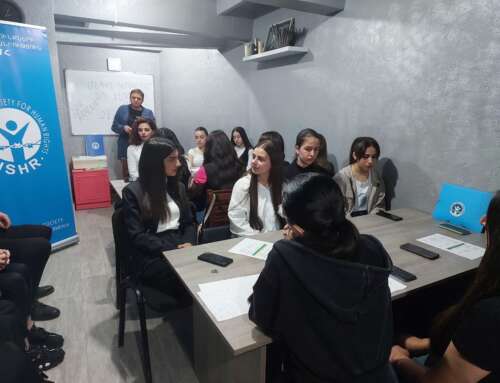
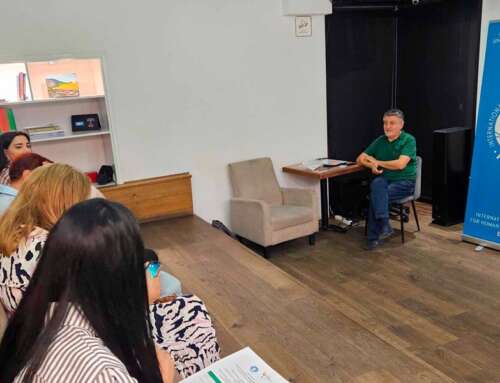
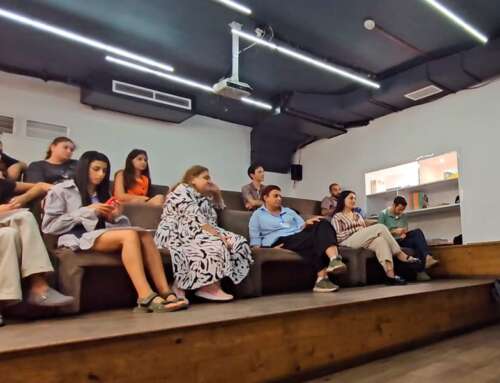
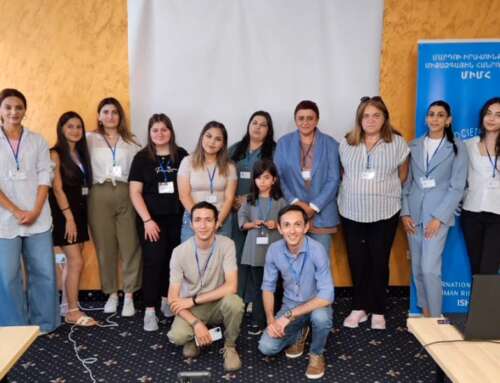
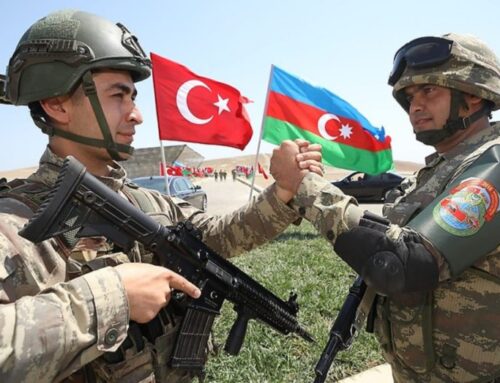
Leave A Comment